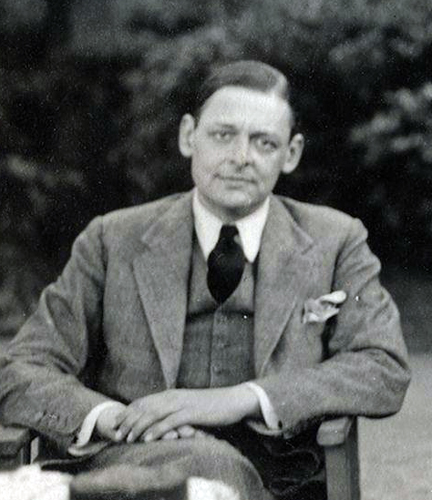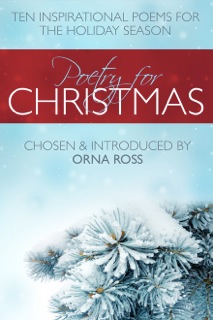Yeats's near contemporary, TS Eliot, also pictures Christmas through the lens of the magi, though his are more human, more physical, occupying a poem full of the mundane details of travel: snow, lack of decent shelter, cursing camel-men, hostile cities and towns, dirty and overcharging villagers, exhaustion and confusion and questioning if “this was all folly”.
But then one morning “at dawn”, it is all worthwhile as they come down into a temperate valley and find what they sought. Written in 1927 shortly after his conversion to Anglican-Catholicism, Eliot has his magus surprised by the consequences of a significant birth. Before this, he “had seen birth and death,/But had thought they were different.” What his journey, the physical one, and the political and religious one that followed, taught him was that creation always has destruction embedded within.
Overall, what the magi found and its consequences, a new way of seeing and believing, was, “(you might say) satisfactory”. Surely this word, in this poem on the same subject, is an answer to Yeats's “unsatisfied ones”
For though Eliot's magus claims satisfaction, and would do it all again, yet he is still cut off, for his way, the old way, was on the losing side as the new “alien people clutching their gods” saw off “the old dispensation” that favoured him and his kind.
Having journeyed so far, seen too much birth and the death and agony it unleashes, he would be glad of another death, and the implied new birth, that would follow.
‘A cold coming we had of it,
Just the worst time of the year
For a journey, and such a long journey:
The ways deep and the weather sharp,
The very dead of winter.'
And the camels galled, sorefooted, refractory,
Lying down in the melting snow.
There were times we regretted
The summer palaces on slopes, the terraces,
And the silken girls bringing sherbet.
Then the camel men cursing and grumbling
and running away, and wanting their liquor and women,
And the night-fires going out, and the lack of shelters,
And the cities hostile and the towns unfriendly
And the villages dirty and charging high prices:
A hard time we had of it.
At the end we preferred to travel all night,
Sleeping in snatches,
With the voices singing in our ears, saying
That this was all folly.
Then at dawn we came down to a temperate valley,
Wet, below the snow line, smelling of vegetation;
With a running stream and a water-mill beating the darkness,
And three trees on the low sky,
And an old white horse galloped away in the meadow.
Then we came to a tavern with vine-leaves over the lintel,
Six hands at an open door dicing for pieces of silver,
And feet kiking the empty wine-skins.
But there was no information, and so we continued
And arriving at evening, not a moment too soon
Finding the place; it was (you might say) satisfactory.
All this was a long time ago, I remember,
And I would do it again, but set down
This set down
This: were we led all that way for
Birth or Death? There was a Birth, certainly
We had evidence and no doubt. I had seen birth and death,
But had thought they were different; this Birth was
Hard and bitter agony for us, like Death, our death.
We returned to our places, these Kingdoms,
But no longer at ease here, in the old dispensation,
With an alien people clutching their gods.
I should be glad of another death.
~ T.S.Eliot’s “Journey of the Magi,” the first in a series of poems later grouped as the Ariel Poems, was published in 1927.
For more poems, by WB Yeats, Adrienne Rich, Thomas Hardy, TS Eliot and others, you can purchase Poetry For Chistmas at your local Amazon store HERE. http://authl.it/w6
